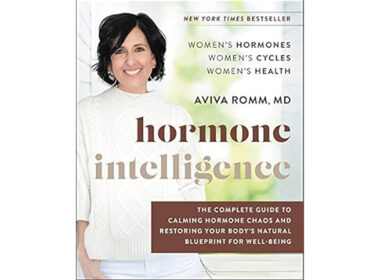I frequently hear accounts from women who have great anxiety and fear about getting pregnant. They stress over missed periods and take pregnancy tests frequently with great nervousness. Often, I hear these stories from women in birth control-related groups on social media; in other words, women who are already using pharmaceutical contraceptives such as the Pill, patch, IUD, or implant. Somehow, despite the method’s stated effectiveness rate, many women still have seeds of doubt about birth control: ”Can I trust this drug or device? How do I know my birth control is working? Just how effective is birth control, anyway?”
Recently, I interviewed Dr. Monique Ruberu, a board-certified OB/GYN and NaProTechnology-trained physician who explained how restorative reproductive medicine (RRM) can help diagnose and treat nearly every gynecological issue. During our chat, Dr. Ruberu shared that she is well-versed in both the Creighton method of fertility awareness charting, which primarily tracks cervical mucus, and the Marquette method, which is a Sympto-Hormonal method using hormone-testing strips. Not only can these fertility awareness methods (FAM) inform women about their hormonal health and any reproductive issues they may have, FAMs can also serve as highly effective methods of natural family planning, providing typical effectiveness rates of pregnancy prevention that are better than the Pill. (To be assured of high efficacy rates, it is recommended that users learn a method from a certified FAM instructor.)
But many women don’t know that they can achieve effective pregnancy prevention without pharmaceutical interventions such as birth control pills or implants. They have no idea that they don’t need to rely on anything but their own knowledge of their bodies to effectively plan pregnancies—if they’ve been educated in a fertility awareness method. And many would be surprised to hear these methods can be as (or more) effective than the Pill. To clear any doubts about all of this up, I asked Dr. Ruberu how learning a FAM can help women feel more confident in their family planning choices and decisions.
In Facebook groups about birth control, I have read that many women, even those on pharmaceutical birth control, have constant pregnancy fears. How could FAM help them?
Dr. Monique Ruberu: I think the issue is, number one, is this method bad for me in any way? And we know that contraceptives have major side effects. They can affect the way that you visualize the person that you’re with—the kind of person you’re attracted to—it modifies those feelings that you have, how you sense people. And it can increase your risk for cancer, so those two reasons in and of themselves are reasons to consider doing something other than hormonal contraceptives.
In addition, if you have any underlying issues that may interfere with your fertility in the future, this is going to really put a wrench in it, by using contraceptives. If you’re using contraceptive pills, you’re simply putting a band-aid over all those issues, and you’re saving them up for later. Rather than addressing them earlier on in your life, you’re allowing them to kind of get worse and worse and worse, underneath that [synthetic] hormonal coverage that you’re hiding the issue with.
Rather, when you use fertility awareness-based methods, not only will you be able to identify when you’re fertile and when you’re not fertile; in addition you’ll be able to identify all the signs and symptoms of any possible underlying issue that you could have. So down the road, when you are ready to conceive and you’re hoping to conceive quickly, if you haven’t dealt with those issues that you have, that’s going to really postpone your time to be able to conceive and it’s going to make your pregnancies much more dangerous. But if, instead, you’re already looking into the issues from the get-go, you can address them from the get-go, you can be much healthier, and you can have confidence in your method.
And speaking of birth control methods that a lot of people have concerns of getting pregnant on; as it happens, pregnancy can happen. Can you speak a little bit about breakthrough ovulation, and when a woman experiences a heavier period, what that may mean?
Dr. Monique Ruberu: Absolutely. So oftentimes, when you use birth control, you’ll find that you have these very light cycles, because the backup mechanism of action of those birth control pills is to thin that inner lining of the uterus. When you thin the inner lining of the uterus, what happens is, if you were to conceive, then that embryo cannot implant properly because the lining is too thin. And if the lining is too thin, then it will try to implant, it will begin a pregnancy, and then all of the sudden you will have a very heavy bleed. And you’ll be like, ‘what happened? I typically have very light periods every month with my birth control, and this month I had a really heavy period, and it was just so strange.’
Well, if you’re sexually active, it could have been that you actually accidentally aborted or miscarried a pregnancy without even intending to do so. So it’s really concerning. The majority of people who are on birth control have zero desire to eliminate their children when they actually happen. And so it’s really scary.
What do you see is the future of restorative reproductive health? Do you see more people hearing about these technologies that can help people in conjunction with their natural cycle?
Dr. Monique Ruberu: I think the majority of women are looking for something that is organic, that doesn’t hurt them in any way; they’re trying to eliminate all the toxins from their lifestyle and from their bodies, their diets. So it just makes sense that you would want to look for the root cause of [reproductive] issues rather than trying to cover them up, rather than ignoring them. You want to actually deal with them early on so you can live a very full life.
And you’re even seeing this with the different types of things that are available for women during their menstrual cycle. If you walk down the aisle for tampons and for pads, you’ll see that there is a very vast, growing section where they’re advertising 100% cotton, no chemicals added, all of these things—and why is that? It’s because people are demanding better products and better things.
And in the same way, people are starting to demand more options when it comes to their GYN care. They’re not willing to settle for a physician who just sits there, talks to them for five minutes, writes them a prescription for a contraceptive and then sends them on their way—which is what I typically used to do when I was practicing medicine before NaProTechnology. It’s just not acceptable to treat people in that way and to not help them and listen to them and actually understand their underlying issues.








Don’t the oral “hormone” pills contain a blank week so women can experience bleeding (not actual menses) just because manufacturers think women want the reassurance of no pregnancy by thinking they had a period?